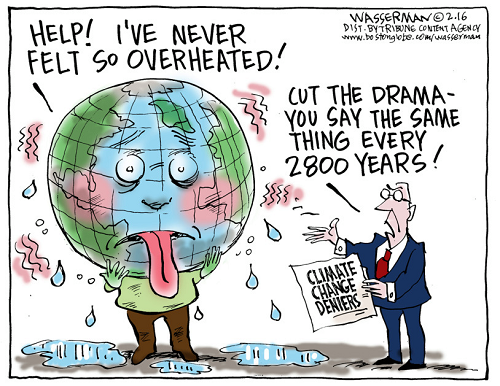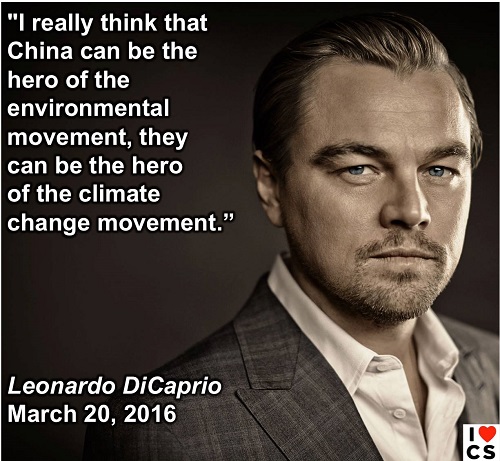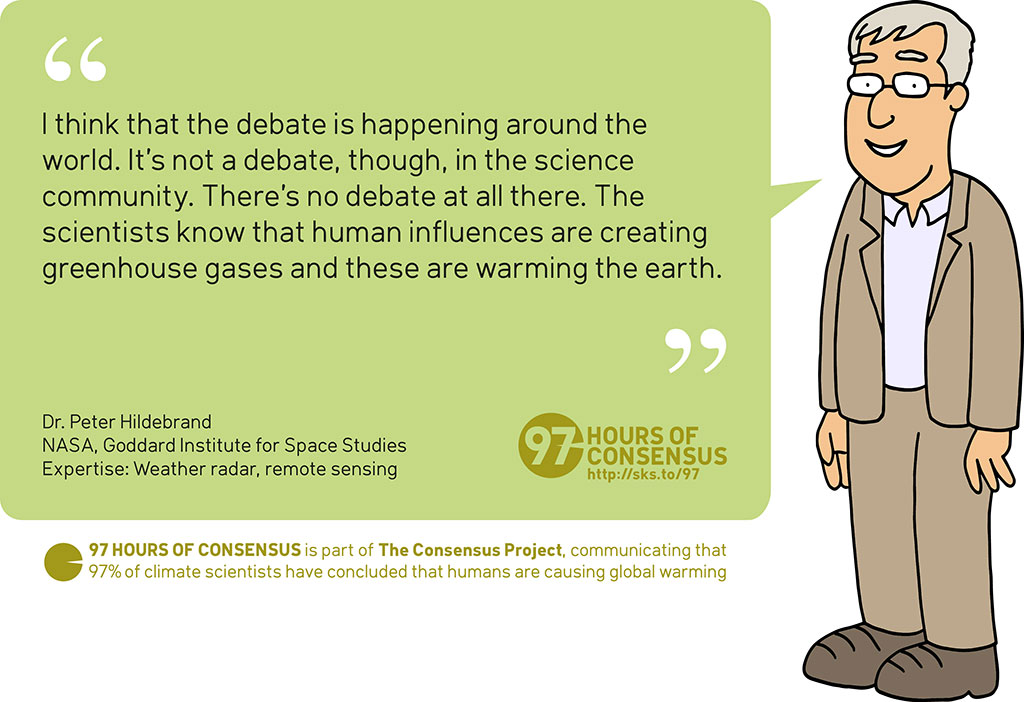2016 SkS Weekly Digest #12
Posted on 20 March 2016 by John Hartz
SkS Highlights... El Niño Impacts... Toon of the Week... Quote of the Week... He Said What?... SkS in the News... SkS Spotlights: MCC... Coming Soon on SkS... Poster of the Week... SkS Week in Review... 97 Hours of Consensus...
SkS Highlights
Lots of global warming since 1998 by Dana Nuccitelli drew the highest number of comments of the articles posted on SkS during the past week. The article is an update to the rebuttal to the myth 'it hasn't warmed since 1998'.
Tracking the 2°C Limit - February 2016 by Rob Honeycutt garnered the second highest number of comments of the articles posted.
El Niño Impacts
In rural villages in Africa and Asia, and in urban neighborhoods in South America, millions of lives have been disrupted by weather linked to the strongest El Niño in a generation.
El Niño Upsets Seasons and Upends Lives Worldwide by Henry Fountain, New York Times, Mar 19, 2016
Toon of the Week

Quote of the Week
"We are in a kind of climate emergency now," Professor (Stefan) Rahmstorf said, noting that global carbon dioxide levels last year rose by a record rate of more than 3 parts per million.
"Governments have promised to act [to curb greenhouse gas emissions] and they need to do better than what they promised in Paris" at the global climate summit last December, he said.
'True shocker': February spike in global temperatures stuns scientists by Peter Hannam, Sydney Morning herald, Mar 14, 2016
He Said What?
Yet the governor* is no climate ally; he’s just a bit better than Trump at hiding his brand of denialism. He falls under the “do-nothing” category of politicians who will accept at least some of the science but want to, well, do nothing about it.
Take what Kasich said in the last debate as an example: After Marco Rubio fumbled through an answer on sea-level rise, Kasich’s speech was almost a relief. “I do believe we contribute to climate change,” he began. I say almost a relief, because Kasich in the same answer also spoke in the familiar climate-denier code: “Now, it doesn’t mean because you pursue a policy of being sensitive to the environment, because we don’t know how much humans actually contribute.”
*John Kasich, Gov of Ohio and candidate for the Republican presidential nomination.
John Kasich is no better than Donald Trump on climate change by Rebecca Leber, Grist, Mar 15, 2016
SkS in the News
In The Next Great Global Warming 'Hiatus' Is Coming!, posted on Forbes, Ethan Siegel introduces the SkS Escalator graphic with:
But there’s an insidious argument that’s going to come up over the coming years (and possibly the next decade or two), once the current spike in temperature subsides: the idea that global warming will have stopped. Global warming doesn’t just stop. It won’t stop unless there’s a causative reason for it to stop, and — at present — there isn’t one. But because the long-term rise (i.e., the “global warming” component) is gradual, and the short-term variations (i.e., the fluctuations above an below the trend-line) are large, it’s going to appear, over 13-to-17 year timescales, that global warming has ceased.
SkS Spotlights: MCC
Mercator Research Institute on Global Commons and Climate Change (MCC)
About MCC
Global economic growth has led to the overuse of natural resources like the atmosphere, land and forests. These special assets are called global commons, because they need worldwide cooperation for their sustainable use. To achieve that, a farsighted and international view is needed, which governments and other stakeholders often lack. MCC aims to fill this gap and provides policy advice as well as research on long-term, global issues such as climate change: In this area we explore solutions, foster public debates, and support a broad societal exploration of development alternatives.
MCC was founded in 2012 by Stiftung Mercator and the Potsdam Institute for Climate Impact Research (PIK). At the end of its inception phase, which ran from 2012 to 2015, MCC supported 28 full-time-equivalent positions, distributed across 47 total staff members. Our research is carried out in seven working groups and one special task force.
Our Vision
We envision a world of deliberative democracies that discuss openly and take well-informed decisions for the sustainable management of global commons. This ensures that current and future generations are provided with equitable access to the global commons.
Our Mission
MCC’s mission is to provide solution-oriented policy pathways for governing the global commons to enhance sustainable development and human well-being. Our approach is based on high-quality research to inform policy making in an iterative societal learning process. We call this assessment-making.
Coming Soon on SkS
- Current record-shattering temperatures are shocking to even climate scientists (Dana)
- In-depth: the scientific challenge of extreme weather attribution (Roz Pidcock)
- Dangerous global warming will happen sooner than thought – study (Joshua Robertson)
- Why is 2016 smashing heat records? (Karl Mathiesen)
- Guest Post (John Abraham)
- 2016 SkS Weekly News Roundup #13 (John Hartz)
- 2016 SkS Weekly Digest #13 (John Hartz)
Poster of the Week

SkS Week in Review
- 2016 SkS Weekly News Roundup #12 by John Hartz
- Worst Mediterranean drought in 900 years has human fingerprints all over it by John Abraham (Climate Conensus - the 97%, Guardian)
- Global Warming Basics: What Has Changed? by Tamino (Open Mind)
- Tracking the 2°C Limit - February 2016 by Rob Honeycutt
- Lots of global warming since 1998 by Dana Nuccitelli
- Sanders, Clinton, Rubio, and Kasich answer climate debate questions by Dana Nuccitelli (Climate Conensus - the 97%, Guardian)
- 2016 SkS Weekly Digest #11 by John Hartz
97 Hours of Consensus: Peter Hildebrand

Quote derived from:
"I think that the debate is happening around the world. It's not a debate, though, in the science community. There's no debate at all there. The scientists know that human influences are creating greenhouse gases and these are warming the earth. And other things are — other human impacts, such as changing the earth's surface, paving over things and the like is also having an effect on the earth. So there's no debate there in the science community."































 Arguments
Arguments






























Today's toon is hardly pro climate science education (or I don't see it that way): it rather reaffirms the n#1 denier's myth on the top left: Climate's changed before.
#1Then again, the cartoon satirizes climate deniers who no matter what happens will always say something like "Well, I expected that, no big deal"
chriskoz & knaugle:
I also have mixed feelings about the primary message of the Toon. The fact that climate science deniers abhor being labeled a "denier" suggest to me that the cartoonist meant it be a put down of climate science deniers.
Thanks for paying attention and providing feedback.